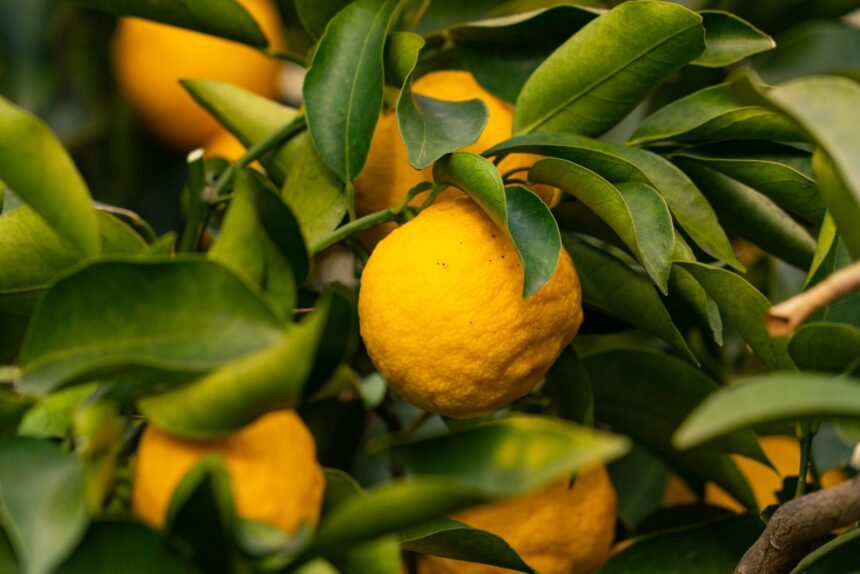Yuzu (Citrus Junos) is a sour citrus fruit that originates from China and Korea more than 1,000 years ago but is more commonly associated with Japan. It is now found in other parts of the world. Also known as Japanese citron, or yuja, yuzu is a variation between the Ichang papeda and sour mandarin orange. This fruit is similar in size and appearance to a tangerine but has a thicker rind and is typically bumpier in texture.
Inside a yuzu, there are many seeds, which means less juice than your average citrus fruit. Its juice, peel, and seeds are commonly served in vinegar, seasonings, sauces, and marmalades but can also be found in cosmetics and aromatherapy. Yuzu is highly nutritious and contains many potential health benefits and uses. This summer, step outside your comfort zone and experiment with Yuzu fruit!
What Does Yuzu Taste Like?
Yuzu has a citrusy, tart flavor that can be described as a combination of grapefruit, lemon, and mandarin. It has hints of floral and herbal notes and a powerful, zesty aroma.
What Are The Health Benefits of Yuzu?
Source: Top10Best/Youtube
Yuzu is low in calories but provides an impressive array of nutrients. It contains copper, vitamin B5, vitamin B6, thiamine, vitamin A, Vitamin C, Fiber, magnesium, iron, zinc, calcium, riboflavin, niacin, and vitamin E. This powerful fruit also contains essential plant compounds such as carotenoids, flavonoids, and limonoids. These are antioxidants that can help fight cancer cells and neutralize free radicals, reduce inflammation in the body, and reduce your risk of brain and heart disease, and diabetes.
Popular Uses

Source: neutralize/Shutterstock
Although Yuzu may look similar to a tangerine, it’s more acidic and tart and not eaten whole. It’s more commonly juiced or zested and incorporated into recipes. You can try adding it to sauces, dressings, seasonings, and marinades for savory dishes, or adding sugar when making truffles, ice cream, or pie.
Yuzu’s tart, citrus aroma, and notes of mandarin and grapefruit make it great for aromatherapy and supporting respiratory health. Yuzu essential oil has been used in Japanese culture for centuries for its therapeutic properties.
Yuzu and Jasmine Essential Oil Lotion DIY
Source: Edens Garden Essential Oils/Youtube
Follow these easy steps to make an incredible Yuzu and Jasmine essential oil Lotion. Yuzu has a bright, citrus peel aroma. Jasmine has a rich, flowery aroma.
Yuja tea
Source: Maangchi/Youtube
Yujacha is a simple Korean tea made from Yuja fruit. It’s fresh, sweet, and tangy and has a strong and unique citron flavor and aroma. It’s full of vitamin C and boosts your immune system.
Matcha Yuzu Cup

Source: Matcha Yuzu Cup
A simple, no-bake, healthy yet indulgent vegan dessert. The ultimate mash-up of two Asian flavors: matcha and yuzu.









